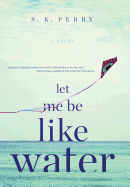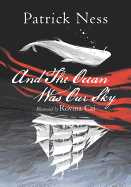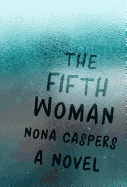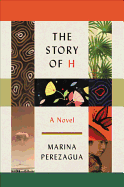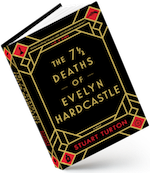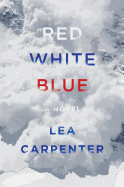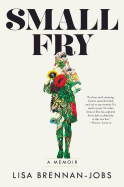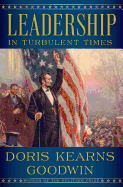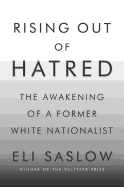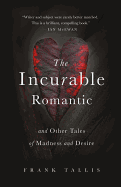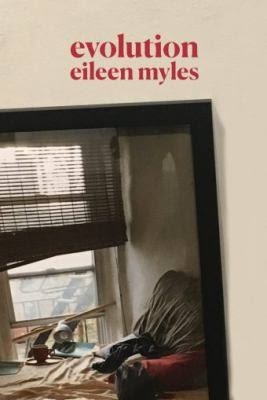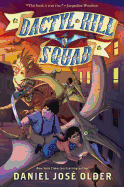Tuesday, September 18, 2018
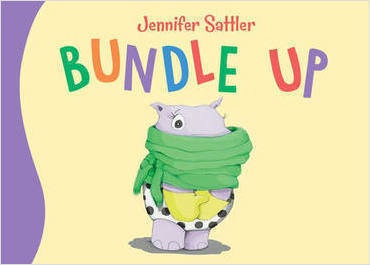 Bundle Up by Jennifer Sattler (Sleeping Bear Press, $7.99)
Bundle Up by Jennifer Sattler (Sleeping Bear Press, $7.99) Find Colors by Tamara Shopsin and Jason Fulford (Phaidon Press, $14.95)
Find Colors by Tamara Shopsin and Jason Fulford (Phaidon Press, $14.95)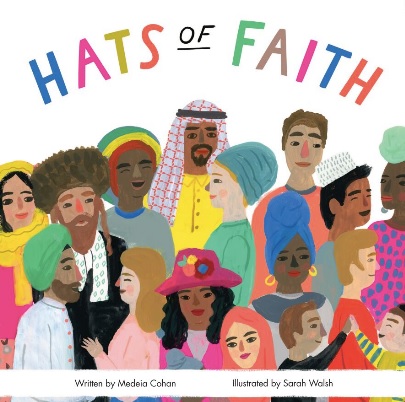 Hats of Faith by Medeia Cohan, illus. by Sarah Walsh (Chronicle, $9.99)
Hats of Faith by Medeia Cohan, illus. by Sarah Walsh (Chronicle, $9.99)Let Me Be Like Water
by S.K. Perry
Discover: This is a beautiful tale of young love and young loss, and the magical powers of friendship to heal broken hearts.
The Fifth Woman
by Nona Caspers
Discover: The Fifth Woman is a book of connected short stories that depicts the surreal aftermath of losing a loved one.
The Story of H
by Marina Perezagua, transl. by Valerie Miles
Discover: A Japanese woman and an American soldier search for a girl who went missing in the aftermath of the atomic bombing of Hiroshima.
The 7½ Deaths of Evelyn Hardcastle
by Stuart Turton
Nineteen years ago, a young boy was murdered on his family's estate. On the anniversary of the tragedy, his parents are hosting a masquerade, inviting all the people who had been present then. That Lord Peter and Lady Helena Hardcastle are strangely elusive during their party is just one of the mysteries in Stuart Turton's mesmerizing debut novel, The 7½ Deaths of Evelyn Hardcastle.
A man wakes up in a forest, wind howling, rain pouring; his mind is a blank. He hears a woman scream. A stranger comes up behind him, drops a compass into his pocket, and whispers "east." The man heads in that direction, casting up at a Georgian mansion, Blackheath, where he's met by a scarred, silent butler. The man rushes in, begging for help--in the forest, he heard a gunshot. He seems to know that the woman who screamed is named Anna. A "decadently rumpled" man greets him by name--Sebastian--and questions him, but Sebastian Bell has no answers, only his belief that Anna--whoever she is--has been murdered. A physician is sent for, who "smells of brandy, but cheerfully so, as though every drop went down smiling." He advises Bell to rest. So far, a straightforward, albeit slightly eerie, mystery. But later in the day, Bell's passage down the hall is blocked by a man dressed as a medieval plague doctor. He asks Bell, "You woke up with a word on your lips, what was it?" Bell answers "Anna," and the plague doctor replies, "That's a pity." Bell has no idea what's happening, nor does the reader, and the intrigue is just ramping up.
Bell then meets Evelyn Hardcastle, the daughter of the house, who informs him that he's a Harley Street doctor, invited to the party to sell dope to the guests. That night, when Bell returns to his room, he finds a dead rabbit--stabbed with a carving knife--in his bed, with a note from the Blackheath footman, and he faints. He is awakened by the doorbell; when he answers it, he finds a frantic Sebastian Bell asking for help! Now Turton's novel veers wildly off conventional tracks. On Day Two, Bell has inexplicably become the butler, Collins. On Day Three, Bell awakens as playboy Donald Davies, with the plague doctor waiting in the shadows of his bedroom. He's told, "You were a doctor. Then a butler, today a playboy, tomorrow a banker. None of them is your real face, or your real personality. Those were stripped from you when you entered Blackheath, and they won't be returned until you leave." The plague doctor will not tell Bell who he really is (Aiden Bishop, he later discovers) nor how he got to Blackheath, but does tell him how to escape: "Somebody's going to be murdered at the ball tonight. It won't appear to be a murder and so the murderer won't be caught. Rectify that injustice and I'll show you the way out." He goes on to explain that the current day will be repeated eight times, and Bishop will see it through the eyes of eight different hosts. If he doesn't solve the murder, he'll be stripped of his memories and returned to the body of Bell to start over again.
After being a drug dealer, a butler, a coward, a glutton, and a rapist, he has three hosts left. How many times has Bishop danced this dance with the plague doctor? More than the doctor can recall. But each time, Bishop recalls an additional fragment. Has he enough clues to finally break away? Can he hold on to this knowledge long enough to escape the footman who has inexplicably become his nemesis and deliver it to the plague doctor? "It's like I've been asked to dig a hole with a shovel made of sparrows," Bishop laments. While the eight "detectives" contend with murder, blackmail, secret codes and hidden messages, it becomes harder for Bishop to keep a straight course as the different personalities mix in him: "I'm no longer a man, I'm a chorus."
Why did Aiden Bishop come to Blackheath in the first place? What is the underlying secret of the plague doctor? How is Evelyn Hardcastle murdered? Are these the fantasies of a madman? In this remarkably complex novel, Turton has created a mind-bending puzzle that rewards a second reading to uncover clever hints missed the first time. His plot is dazzling, as is his premise, and will have readers debating the implications and possibilities in book groups and on blog posts. An added delight is his sharp prose, as well as his wit. Maids scrub "their youth away on the floor"; Lord Cecil has declined--"A ragged specter of beauty suggests itself, but his stash of splendor has almost run dry."
Aiden Bishop wonders if the future is a promise we can't break, but he struggles on. The other guests repeat the same decisions every day, but Bishop is able to make slight course corrections over the innumerable eight-day loops. Stuart Turton makes you care about Bishop's progress, while dishing up an intricate, ingenious and enthralling mystery. --Marilyn Dahl
Mystery & Thriller
Red, White, Blue
by Lea Carpenter
Discover: The story of a CIA spy gradually unfolds, narrated by both his daughter and a mysterious case officer.
Biography & Memoir
Small Fry
by Lisa Brennan-Jobs
Discover: The daughter of Apple cofounder Steve Jobs writes an emotional, cathartic and haunting coming-of-age tale of family dysfunction.
History
Leadership: In Turbulent Times
by Doris Kearns Goodwin
Discover: Presidential biographer Doris Kearns Goodwin examines the nature of leadership as demonstrated by the careers of four major U.S. presidents.
Political Science
Rising Out of Hatred: The Awakening of a Former White Nationalist
by Eli Saslow
Discover: An up-and-coming White Nationalist sees the world in a different light when a diverse group of college students treats him with kindness and compassion.
Social Science
Rage Becomes Her: The Power of Women's Anger
by Soraya Chemaly
Discover: In her look at the power of female rage, Soraya Chemaly argues that anger is the first step on the road to justice.
Psychology & Self-Help
The Incurable Romantic: And Other Tales of Madness and Desire
by Frank Tallis
Discover: Frank Tallis, a British clinical psychologist and mystery writer, chooses 11 of his most interesting cases to illustrate the link between romantic turmoil and mental health.
Poetry
Evolution
by Eileen Myles
Discover: In a bold collection of poems, Eileen Myles reinforces their justifiable fame as the unabashed voice of what's left of New York's downtown edginess.
Children's & Young Adult
And the Ocean Was Our Sky
by Patrick Ness, illus. by Rovina Cai
Discover: In Patrick Ness's young adult retelling of Moby Dick, a whale hunts down the white ship of her man enemy.
Dactyl Hill Squad
by Daniel José Older
Dactyl Hill Squad has everything a reader could possibly want in a middle-grade book: action, adventure, magic, humor and dinosaurs. Magdalys is the same kind of young, engaging and flawed protagonist as Philip Pullman's Lyra--a character readers can't help but love even when (especially because) she's frustrating. An entertaining and wholly fulfilling series opener. --Siân Gaetano, children's and YA editor, Shelf Awareness
Discover: Twelve-year-old Magdalys discovers she can talk to dinos in Daniel José Older's fantastical alternate history of New York during the Civil War.
| Advertisement Meet belle bear! |


